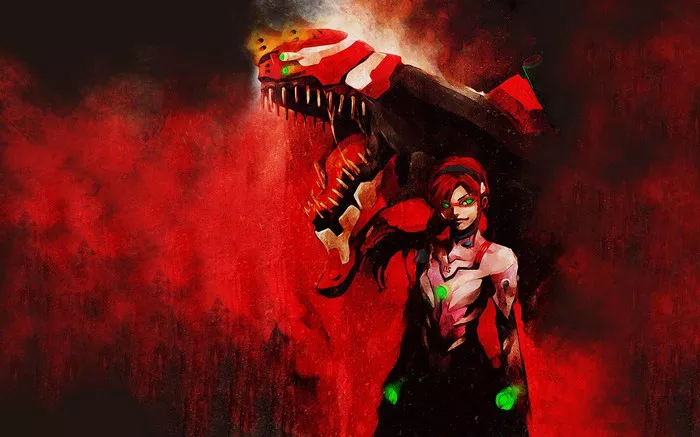Neon Genesis Evangelion, often hailed as a groundbreaking masterpiece in the realm of anime, continues to captivate audiences worldwide decades after its initial release. At the helm of this iconic series is Hideaki Anno, the visionary creator whose unique vision and artistic prowess brought the world of Evangelion to life. In this article, we delve into the motivations behind Anno’s creation of Evangelion, exploring the personal, cultural, and artistic influences that shaped this seminal work.
The Genesis of Evangelion: Unraveling Anno’s Creative Journey
Before delving into the reasons behind Anno’s creation of Evangelion, it is essential to understand the context in which the series emerged. Born in 1960s Japan, Anno grew up during a period of profound social and cultural change, marked by economic upheaval, technological advancement, and shifting societal values. These formative experiences would later influence his creative vision and shape the themes explored in Evangelion.
The Personal Quest for Meaning: Anno’s Struggle with Depression
At the heart of Evangelion lies a deeply personal narrative that reflects Anno’s own struggles with mental health and existential angst. Throughout his life, Anno grappled with feelings of depression, anxiety, and alienation, which found expression in the themes of isolation, identity, and existential dread that permeate Evangelion. By channeling his own experiences into his work, Anno created a series that resonated with audiences on a visceral and emotional level, offering a raw and unflinching portrayal of the human condition.
An Artist’s Response to Societal Pressures: Deconstructing Mecha Anime Tropes
In addition to his personal struggles, Anno’s creative vision for Evangelion was shaped by his disillusionment with the conventions of the mecha anime genre. At the time of Evangelion’s creation, mecha anime had become synonymous with formulaic storytelling, flashy action sequences, and heroic protagonists. Anno sought to subvert these tropes and challenge audience expectations by deconstructing the genre from within, exploring the psychological and emotional toll of piloting giant robots in the face of existential threats.
Cultural Critique and Social Commentary: Anno’s Response to Contemporary Japan
Beyond its narrative and thematic elements, Evangelion serves as a powerful critique of contemporary Japanese society, addressing issues such as alienation, conformity, and the search for meaning in a rapidly changing world. Through its portrayal of a dystopian future where humanity faces extinction at the hands of mysterious entities known as Angels, Evangelion reflects Anno’s concerns about the direction in which Japanese society was headed at the time. By presenting a bleak and uncompromising vision of the future, Anno forces viewers to confront uncomfortable truths about the world in which they live.
The Influence of Anno’s Personal Beliefs and Philosophy
Anno’s creation of Evangelion was also influenced by his own philosophical beliefs and worldview. Drawing inspiration from a diverse range of sources, including psychoanalysis, existentialism, and Eastern spirituality, Anno crafted a narrative that grapples with fundamental questions about the nature of existence, the human condition, and the search for meaning in a chaotic and uncertain universe. By weaving these philosophical themes into the fabric of Evangelion, Anno invites viewers to ponder their own place in the cosmos and contemplate the deeper mysteries of life.
The Legacy of Evangelion: An Enduring Cultural Phenomenon
Nearly three decades since its debut, Evangelion continues to leave an indelible mark on popular culture, inspiring countless adaptations, spin-offs, and tributes across various media. Its complex characters, intricate narrative, and thought-provoking themes have sparked intense debate and analysis among fans and scholars alike, cementing its status as a cultural touchstone and a defining work of the anime medium.
Conclusion
In conclusion, the creation of Neon Genesis Evangelion by Hideaki Anno represents a convergence of personal, cultural, and artistic influences that have left an indelible mark on the world of anime and popular culture. Through his own struggles with mental health, his critique of societal norms, and his exploration of existential themes, Anno crafted a series that transcends the boundaries of its medium, inviting viewers to ponder the mysteries of existence and confront the complexities of the human condition. As Evangelion continues to captivate audiences around the world, its enduring legacy serves as a testament to the power of art to provoke thought, inspire change, and illuminate the depths of the human soul.


